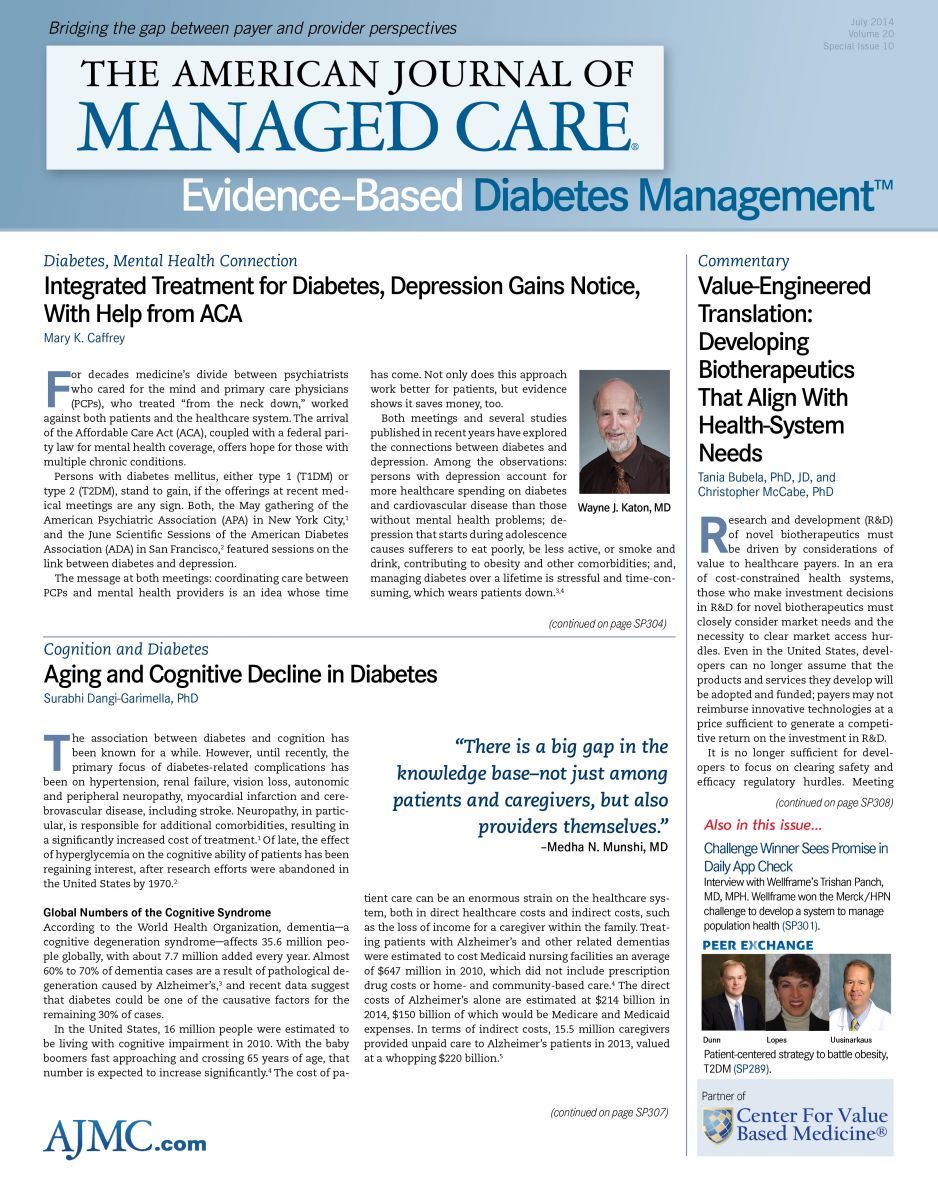- Center on Health Equity & Access
- Clinical
- Health Care Cost
- Health Care Delivery
- Insurance
- Policy
- Technology
- Value-Based Care
Challenge Winner Sees Promise in Daily App Check
If doctors could see their patients with chronic conditions every day, what would they check?
That, essentially, is the question that the collaborators at Wellframe asked when they developed Heart Coach, a smartphone-based application that gives patients undergoing cardiac rehabilitation a series of daily tasks, such as taking medication, walking, doing an eye check, watching an instructional video, or completing a survey.1
Trishan Panch, MD, MPH, co-founder and chief medical officer for Wellframe, described the technology, which won the challenge set forth by Merck and the Heritage Provider Network (HPN): to develop a system for managing population health. The application will prove quite valuable as healthcare moves away from the traditional fee-for-service model.
Wellframe’s mission is to use technology to help patients recover from acute health crises and avoid repeat episodes.2 Of course, heart attacks and strokes typically do not happen out of the blue—they are often the result of failing to manage a chronic condition, such as diabetes or hypertension. In an interview with Evidence-Based Diabetes Management, Panch described the well-known challenge of managing these conditions: “It requires sustained coordination and action,” between doctor and patient, he said, and it can be really hard for doctors to motivate patients every day.
Technology’s role, as Panch explained, is to provide not only that between-visit monitoring but also the motivation. What Wellframe has found, he said, is that the technology helps, but what really matters is the relationship that develops over time as patients check-in daily. Of course, the check-ins also catch things that go awry and require immediate attention, Panch said.
The model shifts the definition of who is the “provider,” he said. “Patients provide their own health,” he said. People like physicians, nurses, or diabetes educators “provide the raw materials.”
Wellframe recently published results for 26 patients enrolled in cardiac rehabilitation who used the Heart Coach for 30 days. Researchers found that patients engaged with the application for 90% of the days during the study period, with “uniformly favorable impact on compliance and adherence.”1 The authors reported that 83% of patients reported a positive or very positive experience with the Heart Coach; providers reported improved communication and patient participation, and that the application “enhanced their provision of therapy.”1
Panch noted that patients aged 65 years and older responded very well to the smartphone application, and those aged 75 years and older felt especially strong about its usefulness. Panch said this reflects the patients’ knowledge that “they need to be on top of this on a day-to-day basis.”References
1. Forman DE, LaFond K, Panch T, Allsup K, Manning K, Sattelmair, J. Utility and efficacy of a smartphone application to enhance the learning and behavior goals of traditional cardiac rehabilitation: a feasibility study [published online May 23, 2014]. J Cardiopulm Rehabil Prev. doi:10.1097/HCR.0000000000000058.
2. Wellframe website. http://wellfra.me/. Accessed July 7, 2014.

Quality of Life: The Pending Outcome in Idiopathic Pulmonary Fibrosis
February 6th 2026Because evidence gaps in idiopathic pulmonary fibrosis research hinder demonstration of antifibrotic therapies’ impact on patient quality of life (QOL), integrating validated health-related QOL measures into trials is urgently needed.
Read More
What It Takes to Improve Guideline-Based Heart Failure Care With Ty J. Gluckman, MD
August 5th 2025Explore innovative strategies to enhance heart failure treatment through guideline-directed medical therapy, remote monitoring, and artificial intelligence–driven solutions for better patient outcomes.
Listen
Building Trust: Public Priorities for Health Care AI Labeling
January 27th 2026A Michigan-based deliberative study found strong public support for patient-informed artificial intelligence (AI) labeling in health care, emphasizing transparency, privacy, equity, and safety to build trust.
Read More

